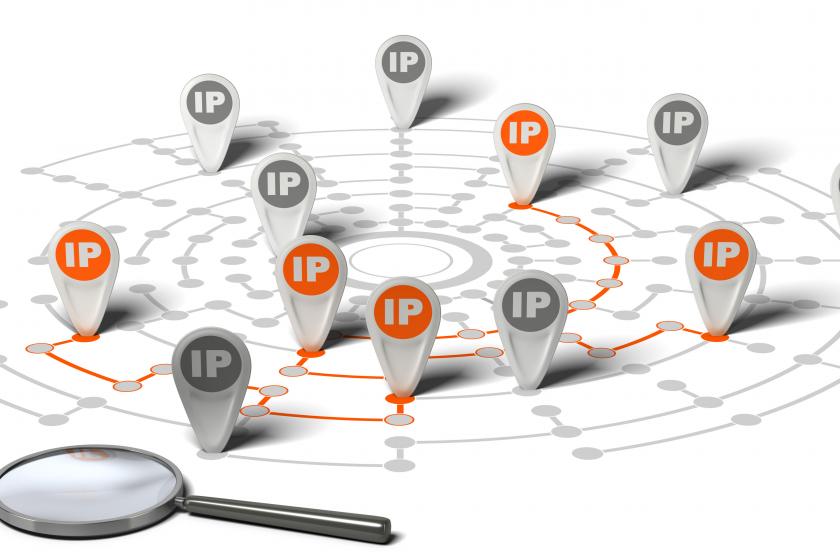Network managers are the unsung heroes of the enterprise. They keep business-critical networks running efficiently and reliably in the face of significant and increasing challenges. Keeping pace with these demands while continuing to meet business expectations requires a deep understanding of existing resources. This is one of many reasons why network security and hardware are often the main areas of focus. However, there’s one crucial but often overlooked component that deserves attention – corporate IP address blocks.
A significant number of businesses have little idea of the blocks they hold or how they are being used. While these IP addresses are assets that can be worth millions of dollars, in many organizations, nobody is specifically charged with tracking them, and many others lack effective systems for keeping on top of their allocations. What other valuable assets would be so poorly managed? In many cases, businesses have acquired address blocks during countless mergers and acquisitions - and with over 76 thousand mergers and acquisitions of companies in North America in the last three years alone - this represents a huge number of IP addresses changing hands.
In addition to M&A activity, network managers should be aware of other opportunities to trigger an IP address review, such as when inefficient earlier network development is suspected or when there are potentially large numbers of individual internet or cable users with a router they abandon where the IP is not reclaimed by the network operator. In addition, an audit should be considered when addresses have been assigned in an unstructured or patchwork fashion, possibly due to manual address tracking.
Once you’ve identified the need to better understand your IP address holdings, here are four tips to ensure robust IP address management, enabling you to mitigate risk and potentially reveal hidden assets.
Approaching IP address management and consolidation
The first step in managing IP addresses is to discover what is in use and assigned to which devices. The easiest way to achieve a comprehensive overview of your network's IP address usage is by deploying an IP address management tool. By understanding which IP addresses are in use, you can identify which IP address blocks can be reclaimed or repurposed.
Renumber to Consolidate and Mitigate Risk
In many organizations, IP address management is a manual process that is prone to errors. These errors can lead to network downtime, security breaches, and other issues that can negatively impact an organization's operations. By renumbering the IP addresses of devices on a network to reallocate them to new – and consolidated - address blocks, you can reduce the number of IP address blocks that need to be tracked and managed. This helps reduce errors such as duplicate IP addresses or IP address conflicts and helps mitigate risk as it makes it easier to implement security policies and protocols.
Repair Reputations
Repairing reputations involves identifying and resolving negative issues associated with IP addresses that can negatively impact your organization's operations – due to potential blacklisting by email providers and other organizations. This might occur if the addresses have been hijacked for use in spamming, phishing, or other malicious activities.
The reputation clean-up process varies depending on the operator of the Reputation Block List (RBL) and the reason the addresses were listed. Generally, clean-up involves either removing malware from affected devices or petitioning the RBL operator to remove the entry. Network operators should also take prudent steps to be good internet citizens, such as blocking outbound email from devices that aren't mail servers and using routing security (e.g., RPKI) to prevent hijacking.
Uncover Hidden Assets with IP Address Consolidation
Another benefit of IP address consolidation is that it often reveals hidden assets. Many organizations lack clarity around which IP addresses are being used and which are not. Often, individual blocks are only partially used. By consolidating IP addresses, you can identify – or create - unused IP address blocks that can be reclaimed and repurposed.
For example, unused IPv4 address blocks can be sold on the open market, generating revenue that can be reinvested in the organization. There are licensed brokers that can assist with the process – from identifying potential buyers to negotiating a fair price for your IP address blocks.
IP address management is an essential component of network health
Managing IP addresses effectively is essential for any organization. By examining your network’s IP address holdings, discovering what is in use, and taking steps to consolidate and repair reputations, you can simplify IP address management and reduce the risk of errors and security breaches. Any unused IP blocks that are identified can potentially be sold for a profit, which could help drive new corporate projects and shine a light on the value that network managers bring. Do you have an IP address management process in place? What tips would you add to this list?
Peter Tobey is the marketing director at Hilco Streambank focused on the IPv4.Global business unit.
Related articles:









